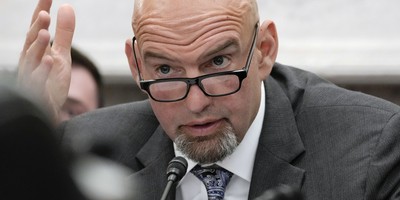President Donald Trump and Israeli Prime Minister Benjamin Netanyahu held a joint press conference after meeting to negotiate the tariff situation.
The meeting comes after President Trump on April 2 announced sweeping global tariffs on several different nations.
During a joint press conference, the two leaders discussed trade between Washington and Jerusalem. Netanyahu started by praising Trump for being a constant ally of Israel. "You actually do the things that you say you do, and I think the people respect that enormously."
Prime Minister Netanyahu praises President Trump for following through with his promises:
— Trump War Room (@TrumpWarRoom) April 7, 2025
“You actually do the things that you say you do, and I think the people respect that enormously, I certainly do." pic.twitter.com/zPrsuB3bmc
The conversation then turned to tariffs. "We will eliminate the trade deficit with the United States. We intend to do it very quickly. We think it's the right thing to do and we're going to also eliminate trade barriers... and I think Israel can serve as a model for other countries who ought to do the same," Netanyahu said.
🇺🇸 -- NOW: Israeli Prime Minister Netanyahu talks trade with President Trump min the Oval Office:
— Belaaz News (@TheBelaaz) April 7, 2025
• Netanyahu: "We will eliminate the trade deficit with the United States. We intend to do it very quickly. We think it's the right thing to do and we're going to also eliminate… pic.twitter.com/5v0Pqf808T
President Trump told reporters that after the meetings, "I think we've come up to some pretty good solutions and conclusions."
There was much anticipation surrounding the meeting as other nations are wrestling with how to respond to Trump’s tariffs.
On the day before Trump’s announcement, Netanyahu appeared to set the tone for the upcoming negotiations. He announced in a post on X that Israel “cancelled all of the customs duties levied on products from the U.S., Israel’s largest trading partner.”
Recommended
Cancelling the customs duties on American goods is an additional step in the policy that my governments have led for a decade in opening up the market to competition, introducing variety to the economy and lowering the cost of living.
In addition to the advantages to the market and to citizens of Israel, the current effort will allow us to further strengthen the alliance and ties between Israel and the US. We will continue to work to reduce barriers and customs, and bolster our special relationship with the US.
Today we cancelled all of the customs duties levied on products from the US, Israel's largest trading partner.
— Benjamin Netanyahu - בנימין נתניהו (@netanyahu) April 1, 2025
Cancelling the customs duties on American goods is an additional step in the policy that my governments have led for a decade in opening up the market to competition,…
Newsweek noted that “The bilateral trade between the U.S. and Israel was worth $34 billion in 2024, according to the Office of the United States Trade Representative.”
Yet, President Trump still imposed a 17 percent tariff on certain Israeli goods. This duty is about seven percentage points higher than the tariffs Trump placed on Iran. The move appeared to catch Jerusalem off guard, according to The Times of Israel.
The surprise invite by Trump came in a phone call on Thursday with Netanyahu, who is presently on a visit to Hungary, when the Israeli leader raised the tariff issue, according to the Israeli officials who spoke on condition of anonymity.
The judges in Netanyahu’s ongoing criminal trial agreed to cancel Monday’s hearing so that he could fly to the US, but refused his lawyer’s request to cancel Wednesday’s hearing.
The economic ramifications for Israel could be significant. Michel Nies, an economist, told The Jerusalem Post that Trump’s new tariffs could cost Israel up to $3 billion.
The Israel Export Institute said that the tariffs present a significant challenge for Israel, especially in non-exempt industries, but noted that exemptions "provide a stable foundation for continued economic cooperation."
"Israel will need to focus diplomatic and economic efforts on minimizing the damage and finding new opportunities in other markets."
The institute also noted that over 60% of Israeli exports to the US are business services, which they said would not be impacted by the new policy.
The two leaders also discussed other matters, including Iran, the trade wars, and others.

























Join the conversation as a VIP Member